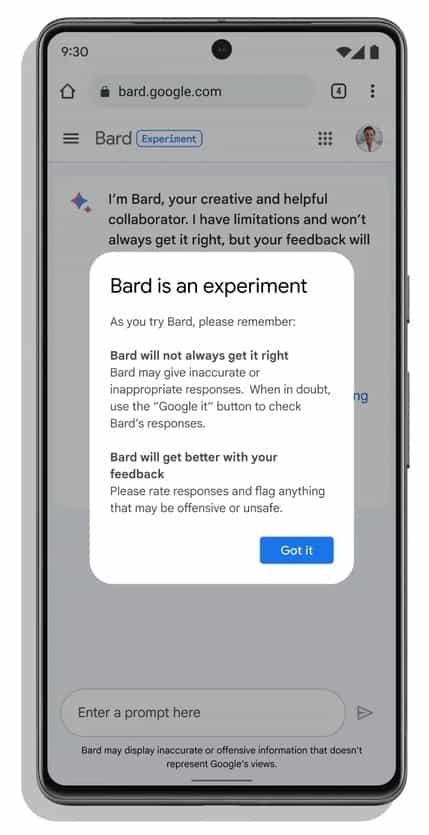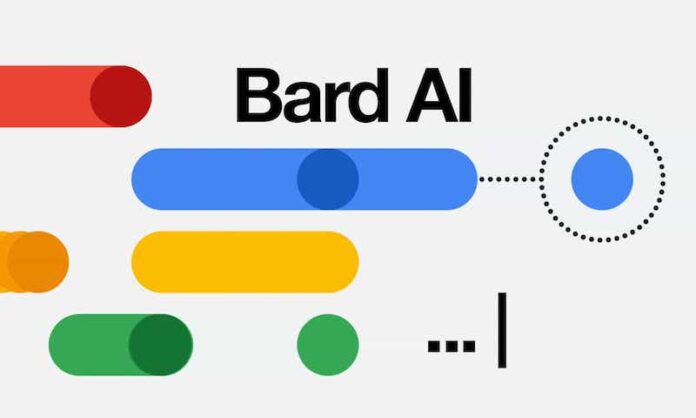Google has begun to open access to Bard, the chatbot that allows you to experience the generative artificial intelligence of the Mountain View company based on LaMDA. After being unveiled earlier this year, Bard began being publicly available, upon request, in English in the US and UK on March 21, 2023. The announcement came from Sissie Hsiao, vice president of products, and Eli Collins, vice president of Research, at Google, in a post on the company’s The Keyword blog.

Bard can be considered as Google’s competitor solution to OpenAI’s ChatGPT, which Microsoft has already begun to integrate into some of its services and products including the Bing search engine, the Edge browser, Skype, and more recently, in an improved version, in Microsoft 365.
In the United States and the United Kingdom, therefore, owners of a Google account set up in English and aged at least 18 years can connect to the website bard.google.com and request an invitation to experience the Bard chatbot. Once the request has been accepted by Google, it is possible to start a dialogue with Bard through a chat, acting as if he were an informed person on a large number of topics. Very similar to ChatGPT, you can ask Bard for suggestions and ideas to complete a project, solve problems, explain complicated aspects of science, stimulate your creativity, or satisfy your thirst for curiosity. Among the examples of using Bard shared by Hsiao, you could ask the chatbot to explain quantum physics or suggest ways to read more.
On a technical level, Bard is described by Google as an experimental generative AI service powered by a large language model (Large Language Models, LLM), specifically on a ‘lightweight’ version of the Language Model for Dialogue Applications (aka LaMDA), a language model for speech applications that Google has developed and has been using for some years now to power next-generation language and conversation features. Simply put, Bard’s intelligence works like this: The moment you type a question to Bard, the chatbot understands the request and relies on that knowledge to respond. Once you get a response, you can continue the conversation by asking Bard more, just as you would in a natural conversation with a person. From what he learned, Bard responds by processing one word at a time, predicting the likely next words. The chatbot should thus be able to respond in an ever-changing way, even when asked the same question several times.
Like ChatGPT, Bard is not without its flaws either. In particular, Hsiao reports that Bard could provide “inaccurate, misleading or false information ” even if he shares it with some confidence. This may occur because the model learns a large amount of information that “reflects real-world biases and stereotypes”.
Bard is currently experimental. Google considers Bard a complementary experience to its search engine. This means that, at the moment, Bard has not yet been integrated into Google Search. However, Bard’s responses may contain a link to Google’s search engine to learn more about a particular topic. However, the intention of the Mountain View company is to integrate the LLM models into its search engine. Google invites users who will try Bard in the coming weeks to share their feedback, so it can use it to improve the system.
Google plans to expand access to Bard in the future to other countries beyond the UK and the US, and to other languages beyond English. In Italy, the site is currently accessible with the invitation to wait for the support of the service also in the Bel Paese. How long there will be to wait before Bard becomes accessible here in Italy we do not know.

